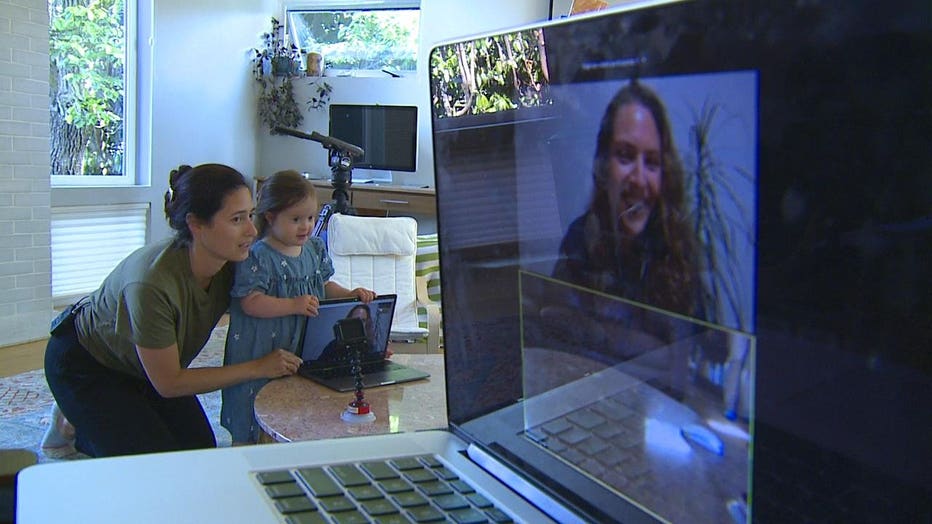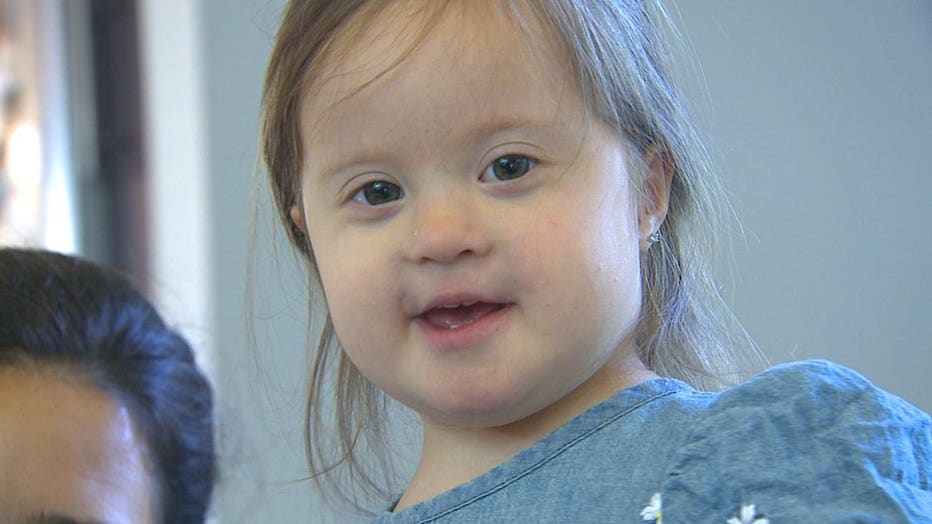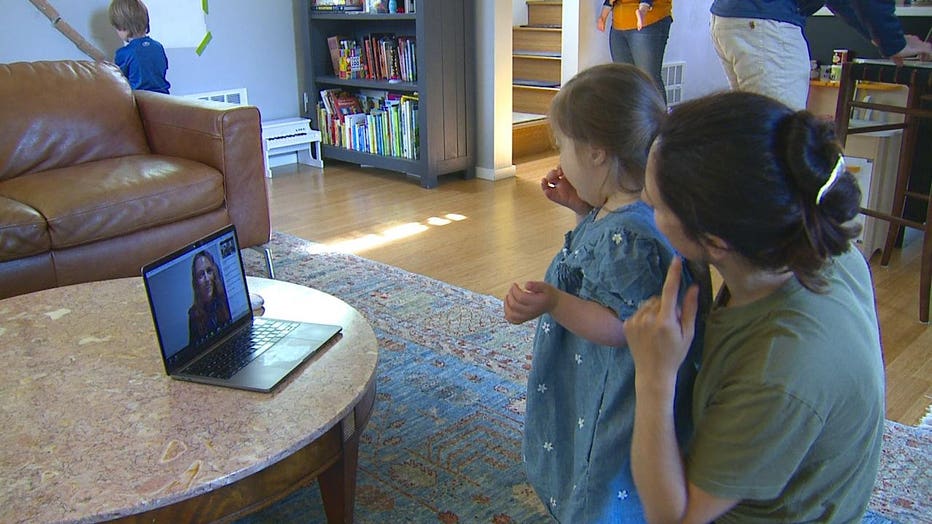Seattle-based nonprofit makes sure kids with special needs don't suffer during pandemic
SEATTLE -- There’s no doubt, many parents and grandparents are worried about their kids taking a big step backward, as school struggle with remote learning programs.
It’s especially true for the parents of children with special needs.
Thankfully there are nonprofits going above and beyond to deliver essential services at a time when many school districts can not.

On this day in Seattle, the Heinberg family is connecting with physical therapist Lauren Vercammen over zoom. The Heinberg's daughter Lona has Down syndrome. She's been receiving services, specialized therapies from Boyer Children's Clinic since she was two months old.
“Boyer has really helped us to ensure that she can reach her potential. Every day and hopefully throughout her life,” said Lona's father Eric Heinberg.

When kids with special needs in Washington state turn three-years-old, they transition from early intervention providers like Boyer Children's Clinic to their local school districts.
In early March, Lona turned three and went off to preschool to receive services from Seattle Public Schools.
“That day we were told schools were out because of the coronavirus,” said Lona's mother Monica Heinberg. “I was worried Lona wasn’t going to get any therapies that she really needs.”
Vercammen and Boyer could not bear the thought of Lona going backward with her development. So they tapped into a program called "Bridge," allowing Boyer to bridge the gap. It prioritizes kids who need the support and keeps providing them essential therapies.
“So she’s still receiving services from us," Vercammen said about the Bridge program. "And we’re able to provide that support and connect with families during this time. So that’s been super beneficial.”
Mike Stewart is the executive director at Boyer Children's Clinic.
“It’s our commitment so that no child is without services,” Stewart said.
Boyer is now working with King County and the state to provide tablets and internet connections so all families have access to those therapies.
“Our ability to deploy these tablets to the community, give them the same chance and equity approach to our services is critical,” Stewart said.
Boyer is also working with the Seattle Public Schools to take on some of the responsibilities of evaluating kids for continuing services past age three.
Boyer, like so many nonprofits right now, is facing financial challenges.
To be able to support more kids with special needs like Lona, Boyer has asked the city of Seattle for rent relief for the next year for their location at Magnuson Park. The city agreed to do so for four months. Families like the Heinbergs are now hoping the city will extend that offering.
Click here for more stories of togetherness


